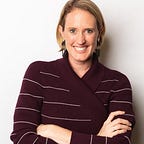40 conversations; 6 lessons we can hold on to
This post was originally shared in an email on January 29, 2021. If you would like to receive my next email update, you can sign up here.
Since the start of school closures — maybe since the start of my educational career — I’ve been desperate to understand, What do we know works? What truths can we hold on to? Recently I’ve been getting questions like these from school leaders multiple times a week, in different forms: How should we think about using precious money and time? What is the most important focus for professional learning? If nothing else, what should we aim to do best? Underneath these questions there is an emotional longing to know we are doing right by our students.
We educators enter this profession, in part, because we love learning. We read the books, try to keep up with the latest research, examine our craft — we seek out learning about learning. But for all that learning energy, I am consistently struck by how many competing theories and ideas we swim in, how few unifying truths we agree on, and how broad the chasm is between what we know and what we do.
If you Google “metaphors about learning,” you will find an abundance of ideas and cute posters. But the ideas underneath don’t often square well with each other or point to clear actions. Are we helping kids collect seashells? Or lighting a fire? Or helping them climb a hill? Many things can be true, but when ideas about “what works” pull in such different directions, it can create real confusion, which too often results in educators trying to do it all at once and hoping something will stick.
Nine months ago, I wrote to you all about my fears that, even when students are back in school consistently, the way we respond to disrupted schooling could exacerbate inequity. After that post, my team and I set out to dig in with content experts, researchers, and leading practitioners to better understand what we do and do not know about intervention and accelerating student learning. One conversion turned into five, then fifteen, then forty.
Every minute of these conversations was a professional privilege. The cumulative experience both confirmed and changed my outlook. These conversations had a surprising effect on my energy level. Hearing over and over how much we know gave me a sense of momentum and possibility in an otherwise tired and heart-wrenching time. Talking with so many insightful thinkers and leaders, I felt connected to eternal educator wisdom. None of the big ideas were surprising or new, but hearing them repeated again and again, gave me renewed conviction and clarity about what matters.
So, 40 hours of interviews and 100 hours of reviewing the transcripts later, I am ready to bring you the six big takeaways:
- Relationships and learning are inseparably connected.
- What teachers expect of their students influences what students expect of themselves.
- Students engage and learn best from work that is challenging, relevant to their lives, and helps them understand and impact the world.
- Moving forward into new content with support will advance learning more than stopping and going back.
- Even a great plan will not work for all students; continuously monitoring, understanding, and meeting needs will.
- The way teachers support students mirrors the way leaders support teachers.
In the weeks ahead, we’ll release one short summary video for each of the six takeaways, which will include clips from across the conversations and lessons learned. For a preview of what is to come, here is a 2-minute series introduction video; feel free to share it.
I hope the series will feel like a community conversation, a virtual book club of friends in learning. If they resonate, I hope the themes become touchstones that we come back to, powering up our focus and the design principles we use to navigate decisions.
This has been a hard chapter in so many ways. I have found hope and energy in remembering what we know. I hope you will, too.
